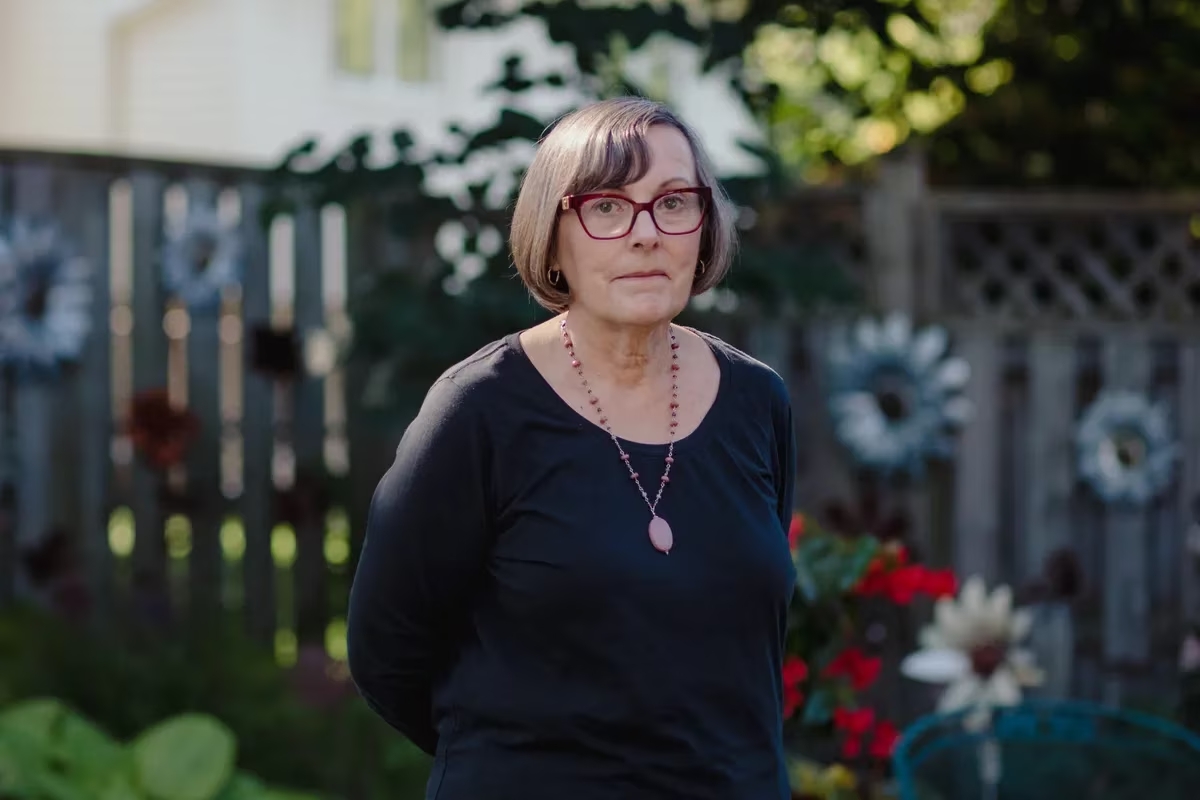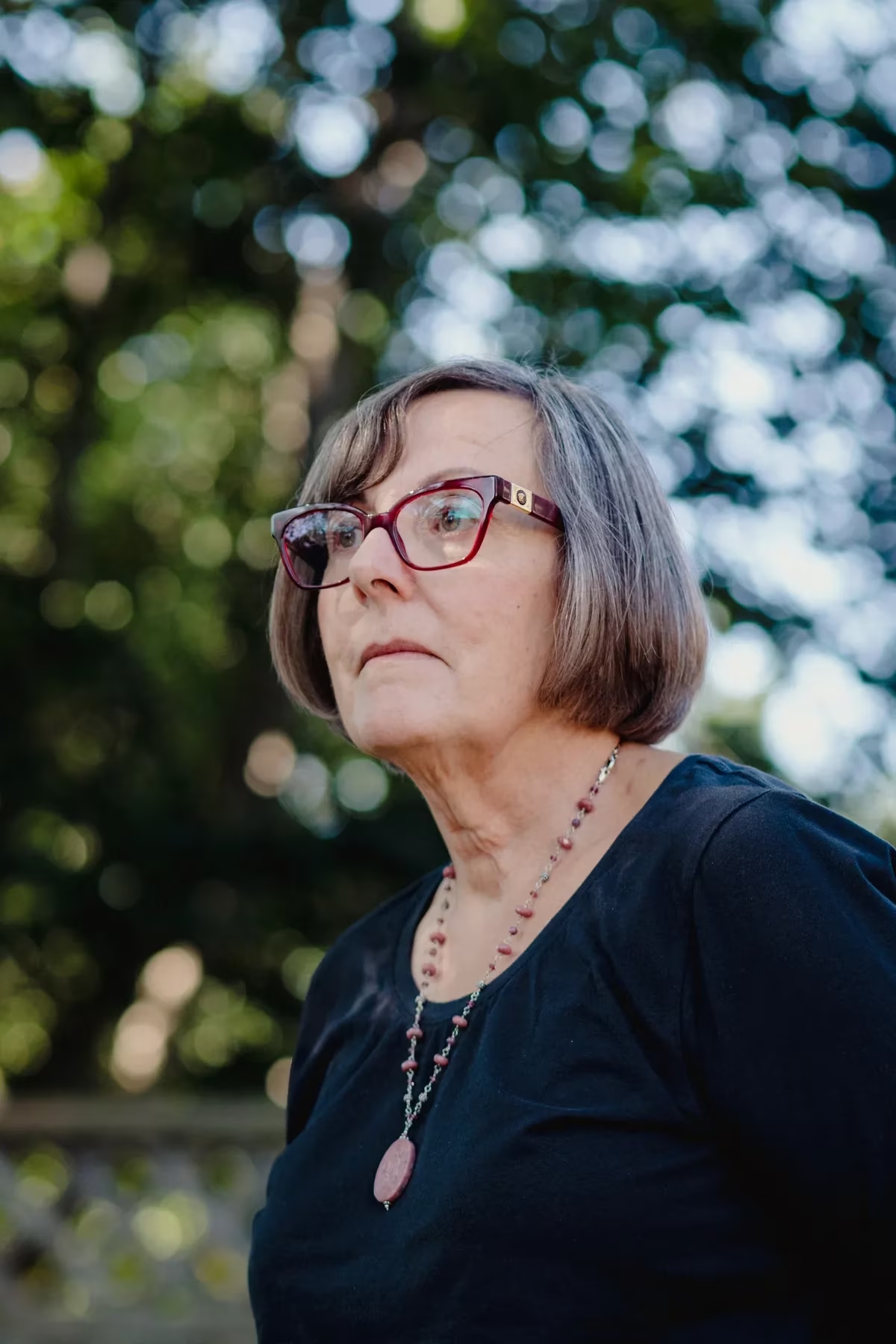
Anita Brooks Kirkland, Chair of the Canadian School Libraries, at her home in Waterloo, Ont. on Sept. 15. CHLOE ELLINGSON/THE GLOBE AND MAIL
Earlier this year, in Chilliwack, B.C., the RCMP issued a news release that an investigation into certain books in the community’s school libraries did not, in fact, meet the definition of child pornography, despite a complaint alleging otherwise.
Around the same time, the Waterloo school board published a strongly worded letter in response to a parent’s accusations that it was facilitating child abuse, and had allowed his young child to access what he deemed an inappropriate book. The book was not available to elementary kids, the board stated, calling the parents arguments a “veiled attempt” to target LGBTQ children and families.
A few months later, trustees in Brandon, Manitoba, received a request from a community member to review – and remove – books dealing with sexual orientation and gender identity from its school libraries. In a packed high school gym, and to loud applause, trustees rejected the request.
Challenges to school library collections are not entirely new: Parents occasionally speak with a teacher librarian or a school if they have concerns about a particular book their children have brought home.
However, the recent scale and tone of these recent challenges mimics what is happening in the United States – albeit to a lesser extent – where religious and political activism has led to widespread book bans. They are a more organized attempt to control what books are available in schools, and are often looking to remove those that deal with gender identity, sexual orientation, or race.
“Books are always the low hanging fruit. When people object to ideas, then they go to how they’re represented in books. And then school libraries in particular, because we have a closed audience, we’re dealing specifically with children and young people, and some parents want more control over what their children read,” said Anita Brooks Kirkland, a retired teacher librarian and currently chair of the Canadian School Libraries.
This week, the Peel District School Board, Ontario’s second largest school board, came under criticism for the confusion it caused around the weeding process in its school libraries. In the spring, teacher librarians were tasked with reviewing their collections as part of a list of directives from the Ministry of Education that included evaluating books and other resources to ensure they are “inclusive and culturally responsive, relevant, and reflective of the student bodies and voices, and broader school communities.”
An advocacy group made up of parents and teachers said the board asked its school librarians to remove fiction and non-fiction books published before 2008 while assessing collections through an equity lens. Books that included The Diary of a Young Girl by Anne Frank, for example, had been removed from some shelves, the group stated.
Education Minister Stephen Lecce ordered the school board to immediately end the practice. The board countered this week that teacher librarians had not been given direction to remove all books that were published prior to 2008 – and did not take any responsibility for the confusion.
The situation in Peel, said Ms. Brooks Kirkland, is one where parents didn’t want books censored. “It’s good they’re defending the right to read,” she said.
The book challenges she’s witnessed elsewhere are different, “because they are basically trying to restrict the human rights of students to access information.”
Among the most chilling incident occurred in February when the Chilliwack RCMP said it had received a report alleging that school library books contained child pornography. The police investigated.
“Police have a duty to investigate these allegations, but it became clear to the investigator, who has years of experience in investigating child pornography offences, that while the material may be deemed inappropriate or concerning to some people, it does not constitute child pornography,” spokesperson Krista Vrolyk stated in a news release.
Graham Shantz, an associate director at the Waterloo Region District School Board in southwestern Ontario, has been in board meetings where a parent has criticized school library collections as age-inappropriate because they discussed gender identity or sexual orientation. The parent accused the board of child abuse and hiding information from parents.
“I feel that it’s unfortunate. I would rather be celebrating the amazing collections we have in our schools,” Mr. Shantz said.
The board took the unusual step of releasing a letter in January to respond to the parent’s delegation. The board said the comments aligned with wider attempts that target public education. Library collection reviews are conducted by professionals, the board said.
The Globe and Mail spoke with two teacher-librarians at the Waterloo board about how they weed their collections. Neither wanted their name published for fear of being targeted on social media.
They explained that the collection in school libraries, unlike community libraries or the ones in universities, are meant to support the curriculum or education initiatives. The collection is also meant to engage young readers, and reflect them and their lives. Trained teacher librarians may weed out books that have not been accessed by students for more than five or 10 years to make way for other high-interest books that reflect the diversity of the school.
Mr. Shantz said that the recent criticism of school library collections is reflective of the other social and political movements in society.
Linda Ross, chair of the Brandon School Division in Manitoba, echoed that sentiment. Her school board received almost 300 emails and letters in May following a delegation to create a committee to ban certain books with gender identity and sexual orientation topics from school libraries. Only six supported creating a committee.
One person wrote that children should only receive instruction in math, science, English and history: “The school has no right in pushing sexual education on children especially without any parental consent.”
Another disagreed with the review and wrote that “banning books goes against the fundamental principles of education and free speech. Students should be exposed to diverse ideas and perspectives, even if those ideas challenge our beliefs or values.”
Ms. Ross was heartened by the number of parents and community members who did not support the review. She wore a scarf and earrings with Pride colours that day.
She said the “book banning people” have attended almost all board meetings since trustees voted down the review. But she says the other side comes too, and she does not feel intimidated.
“People who ban books are rarely on the right side of history,” she said.
CAROLINE ALPHONSO
EDUCATION REPORTER
The Globe and Mail, September 17, 2023

